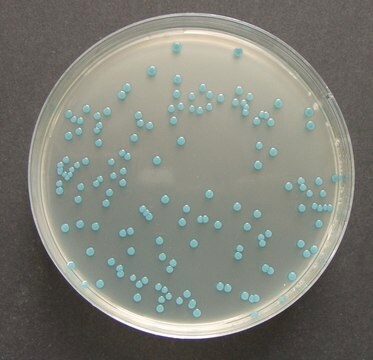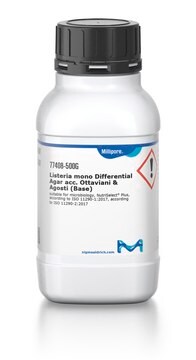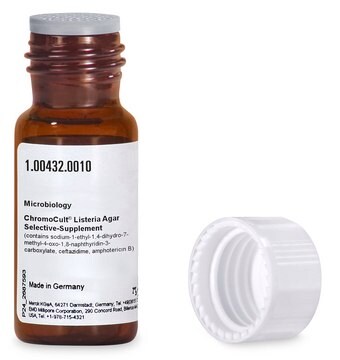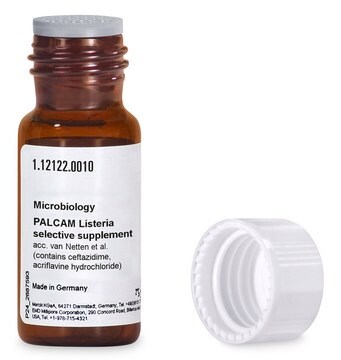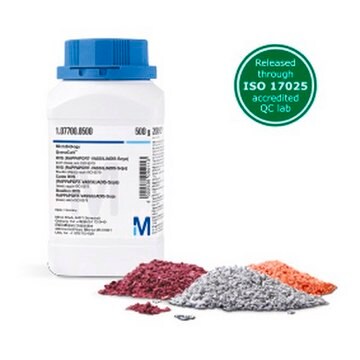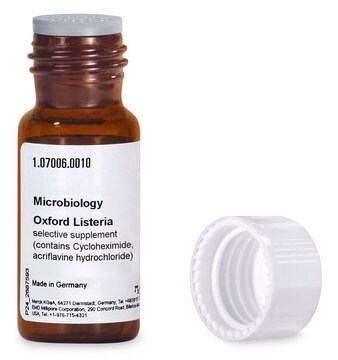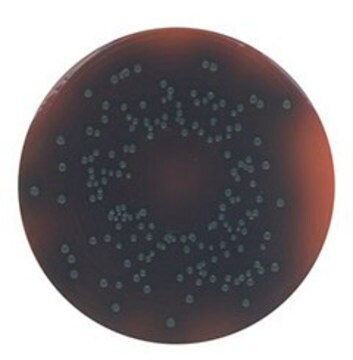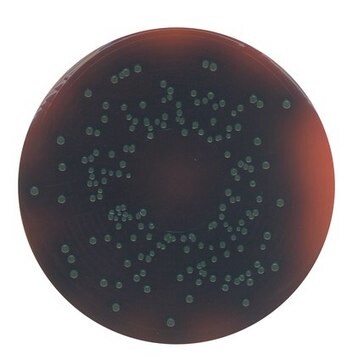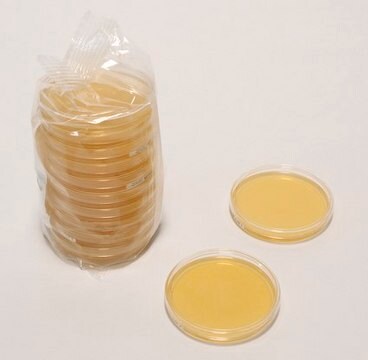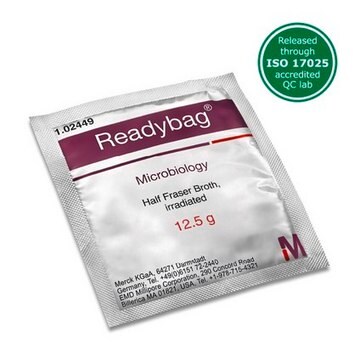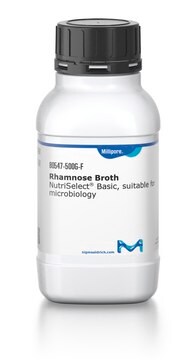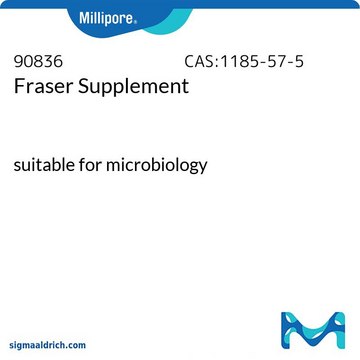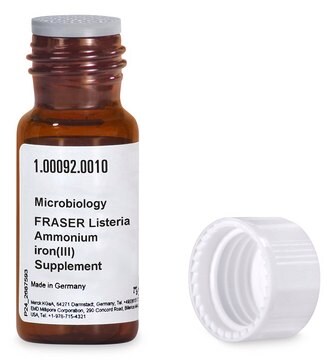1.00427
ChromoCult® Listeria agar (base) acc. OTTAVIANI and AGOSTI
ISO 11290, For the isolation and differentiation of Listeria monocytogenes and other Listeria sp.
Synonym(s):
Listeria selective agar
About This Item
Recommended Products
Agency
APHA
ISO 11290
Quality Level
reg. compliance
FDA (BAM)
form
medium granules (dehydrated (DCM))
manufacturer/tradename
ChromoCult®
technique(s)
microbiological culture: suitable
pH
7.0-7.4 (25 °C, 70 g/L in H2O)
solubility
70 g/L
application(s)
food and beverages
microbiology
storage temp.
15-25°C
suitability
Listeria spp.
Related Categories
General description
Application
Analysis Note
Appearance (clearness): slightly opalescent to opalescent
pH-value (25 °C): 7.0 - 7.4
Growth promotion test in accordance with the current version of DIN EN ISO 11133.
Inoculum on reference medium (Listeria monocytogenes ATCC 13932 (WDCM 00021)):
Colony count (Listeria monocytogenes ATCC 13932 (WDCM 00021)):
Recovery on test medium (Listeria monocytogenes ATCC 13932 (WDCM 00021)): ≥ 50 %
Colonies (Listeria monocytogenes ATCC 13932 (WDCM 00021)): blue green colonies with opaque halo
Inoculum on reference medium (Listeria monocytogenes ATCC 35152 (WDCM 00109)):
Colony count (Listeria monocytogenes ATCC 35152 (WDCM 00109)):
Recovery on test medium (Listeria monocytogenes ATCC 35152 (WDCM 00109)): ≥ 50 %
Colonies(Listeria monocytogenes ATCC 35152 (WDCM 00109)): blue green colonies with opaque halo
Growth (Listeria innocua ATCC 33090 (WDCM 00017)): no limit
Colonies (Listeria innocua ATCC 33090 (WDCM 00017)): blue green colonies without opaque halo
Growth (Escherichia coli ATCC 8739 (WDCM 00012)): total inhibition
Growth (Escherichia coli ATCC 25922 (WDCM 00013)): total inhibition
Growth (Enterococcus faecalis ATCC 19433 (WDCM 00009)): total inhibition
Growth (Enterococcus faecalis ATCC 29212 (WDCM 00087)): total inhibition
Incubation: 44 ± 4 hours at 37 ± 1 °C
Reference media: Tryptic Soy Agar
A recovery rate of 50 % is equivalent to a productivity value of 0.5.
The indicated colony counts result from the sum of a triple determination.
Legal Information
Signal Word
Warning
Hazard Statements
Precautionary Statements
Hazard Classifications
Eye Irrit. 2 - Skin Irrit. 2 - Skin Sens. 1
Storage Class Code
11 - Combustible Solids
WGK
WGK 3
Certificates of Analysis (COA)
Search for Certificates of Analysis (COA) by entering the products Lot/Batch Number. Lot and Batch Numbers can be found on a product’s label following the words ‘Lot’ or ‘Batch’.
Already Own This Product?
Find documentation for the products that you have recently purchased in the Document Library.
Customers Also Viewed
Articles
Detection of Listeria monocytogenes in food and environmental samples according to ISO 11290-1, FDA-BAM and USDA-FSIS
Protocols
In recent years it has been recognized that Listeria is an important public health problem. The disease affects primarily people of advanced age, pregnant women, newborns, and adults with weakened immune systems.
Our team of scientists has experience in all areas of research including Life Science, Material Science, Chemical Synthesis, Chromatography, Analytical and many others.
Contact Technical Service